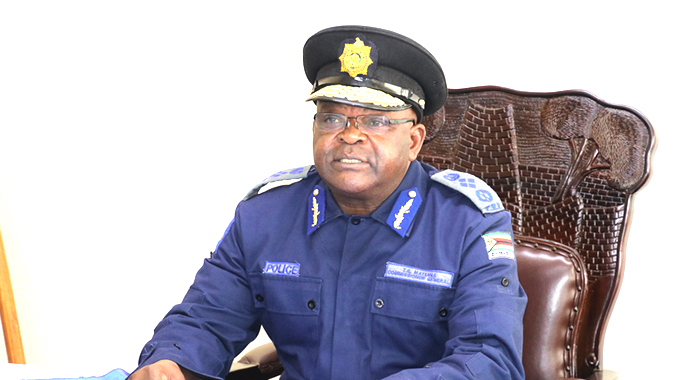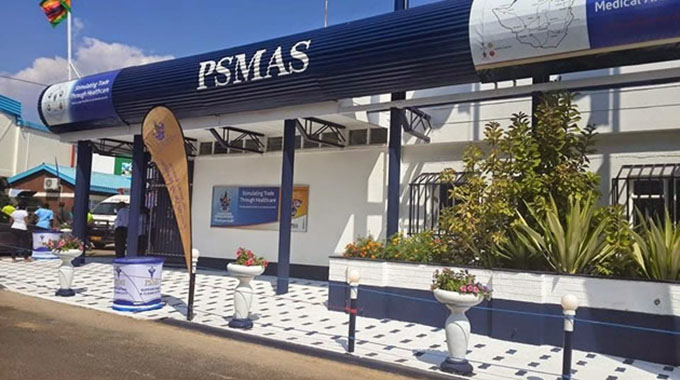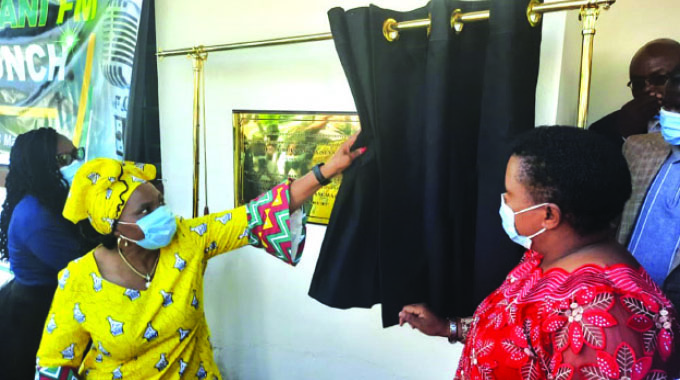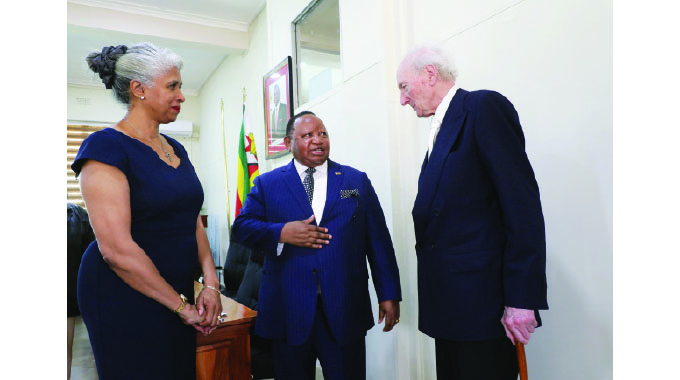Public, transporters welcome spike ban

Freeman Razemba–Crime Reporter
Police have been banned from using light and throwable hand-held tyre spikes, a move welcomed by transport operators and the public, although police at static road blocks and checkpoints will continue using heavy prepositioned strips of spikes where necessary to contain or control traffic.
Hand-held spikes were introduced as what was seen as a far safer way of stopping errant motorists than trying to shoot the tyres with a firearm, but there have been serious accidents with deaths and injuries when these have been thrown at a vehicle, including possibly a kombi crash still being investigated that killed four people in Mutare recently.
Heavy spike strips — being difficult to carry or move and impossible to throw — are in a different class since they have to be prepositioned at a control point and are clearly marked, usually by a boom or barrier that someone has to drive through first.
Police Commissioner-General Godwin Matanga yesterday banned his officers from using hand-held spikes following an outcry from the public, including legislators.
Officers who carry these, let alone use them, will face criminal charges and disciplinary action.
Zimbabwe Passenger Transport Organisation chairman Mr Sam Nanhanga said the spikes had been endangering the lives of passengers and other road users.
“I totally agree with the banning of spikes and that the police should use other measures that do not endanger the lives of people and other road users when trying to arrest errant motorists as safety should come first before anything else. There are a lot of tactics that can be used to arrest these errant motorists, such as taking down the registration number and making a follow up,” he said.
Mr Nanhanga said if they implement some of these safety measures, the Police Service would gain trust and confidence from members of the public. He said the world over, most traffic enforcements promoted the use of digitalisation when enforcing and this should be the same way that the ZRP should promote.
Said Greater Harare Association of Commuter Omnibus Operators secretary-general Mr Ngoni Katsvairo: “We applaud the move taken by the Commissioner-General of Police Godwin Matanga but at the same time call particularly on our commuter omnibus drivers to respect the law and instructions of police as they do their duty of ensuring safety on roads. Once they have been allowed back on the roads we expect them to comply with all the traffic laws including desisting from loading at undersigned zones.”
A Harare resident, Mrs Kudzai Banda, said law enforcement agents should have long banned these spikes and not wait for an outcry from the public to do so.
She said they should have come up with the other safety measures of bringing to book errant motorists a long-time ago.
A retired police officer who preferred anonymity also said: “During the past few years, iron spikes were used at roadblocks as a deterrent measure and were not mobile and hand-held from place to place by traffic officers. It was now disturbing to note that even a ‘plain-clothes police officer’ was now being seen enforcing traffic with a spike.”
Giving details of the ban on hand-held spikes and continued use of stand spikes at static roadblocks, national police spokesperson Assistant Commissioner Paul Nyathi said: “The Commissioner-General of Police (Godwin Matanga) has noted with concern allegations that some police officers are using hand held spikes whilst trying to stop some errant motorists from evading police check points and general enforcement of road rules and regulations in the country.
“These allegations have resulted in varied views from the public, including parliamentarians.
“In this regard, the Commissioner General of Police has with immediate effect banned the use of hand held spikes by any police officers whilst performing traffic enforcement duties throughout the country. Any police officer who will defy this directive will be arrested and face both criminal and stern disciplinary action. No police officer will be allowed to move around whilst openly holding or carrying spikes under the guise of traffic enforcements.”
Asst Comm Nyathi said police commanders at all levels have been ordered to ensure that this directive is strictly followed by members.
“The Zimbabwe Republic Police will only stick to the use of standard and approved spikes as the norm where these are strategically used at conventional road blocks and checkpoints and are strategically used at conventional road blocks and checkpoints.
“The spikes are laid down on the ground with certified specification to assist police officers to control motorists who will try to evade roadblocks by driving through the roadblocks or go round sideways and in the process pose as a danger to other motorists, the general public and police officers,” he said.
He appealed to drivers to stop whenever they were directed to do so by police officers on the roads.
“We have observed that in major cities such as Harare and Bulawayo some kombis and pirate taxis, especially those with no number plates, do not stop at police roadblocks or police checkpoints. This makes it difficult for police officers to either arrest or trace them to account for their illegal activities.
“On the other hand, the police have noted with concern that there are some public service vehicle drivers and pirate taxis who get involved in road traffic accidents or openly go through red robots at traffic controlled intersections and later on claim they were running away from police officers or a spike has been thrown at them,” he said.
Asst Comm Nyathi added, “In most cases initial enquiries have revealed that they will be trying to cover up for their criminal conduct. In the same vein, the police urge all public service vehicle operators to seriously introspect on the manner they are conducting their operations in the country and genuinely assist in the maintenance of law and order on the roads.”
He said the recent announcement by President Mnangagwa on the operations of public service vehicles should be a guide on the need to ensure that drivers and crew are strictly adhering to the laws of the country.
“Therefore there is no need for transport operators to put money first at the expense of the travelling public. It is a fact that law and order and business go hand in hand. This means that public service operators should be beacons of peace and law and order in all their activities.
“The Zimbabwe Republic Police is ready to work with the relevant arms of Government and other stakeholders to ensure that road safety is prioritised by all motorists,” Asst Comm Nyathi said.
The developments come after police are still investigating into an incident in which four people including a learner died, while eight others were injured when a Toyota Hiace commuter omnibus burst its left tyre and overturned after passing through a police checkpoint along the Vumba-Mutare Road in Mutare.







Comments